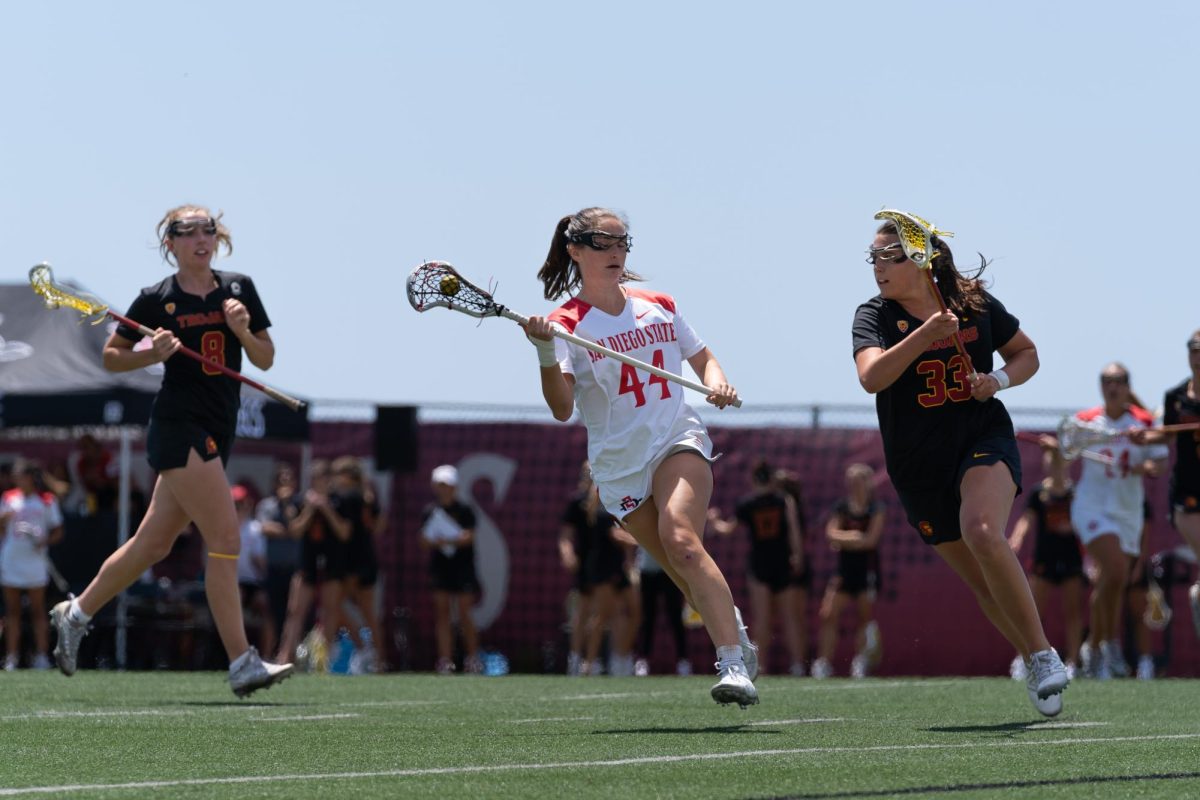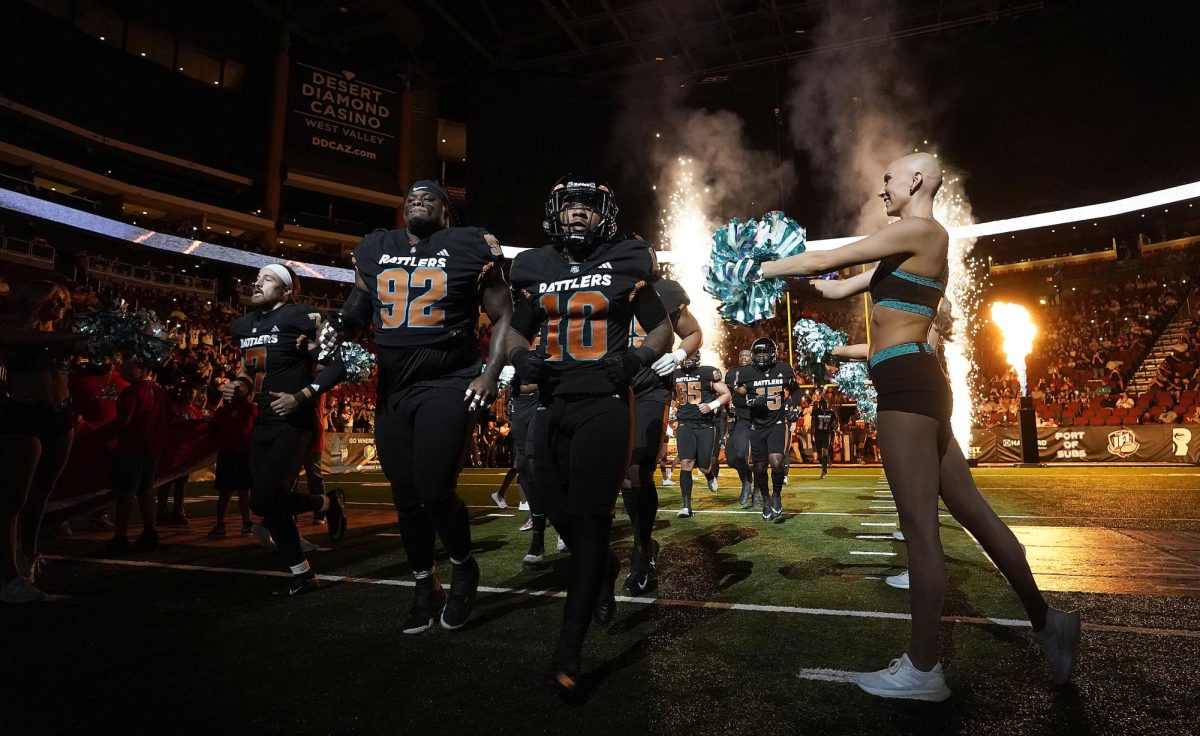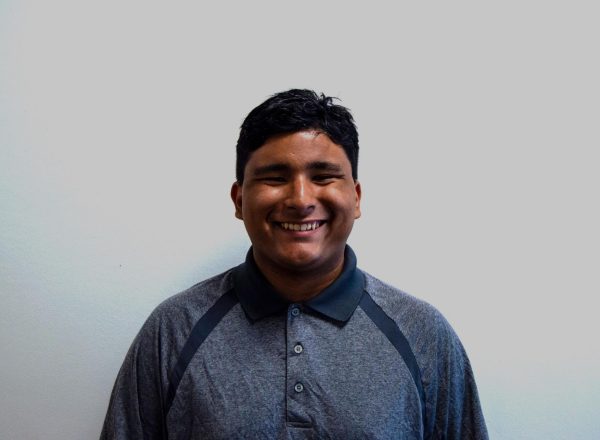The NCAA’s name, image and likeness (NIL) policy has brought millions of dollars into college athletics, but international student-athletes continue to miss out on the money. Immigration law restrictions surrounding F-1 student visas only allow limited work and block international athletes from earning through NIL.
NIL activities could be considered a violation of their visa status and lead to possible deportation. F-1 visas allow 20 hours of on-campus or limited off-campus work per week.
Over 25,000 international student-athletes were enrolled at NCAA schools in 2024. Roughly 13% of Division 1 athletes and 7% of Division II were born outside the country. These athletes compete alongside their teammates but are not given the same opportunities to monetize their brand.
Jenna Fee Feyerabend, an SDSU track and field athlete born in Groß-Gerau, Germany, holds school records and is the 2024 Mountain West Heptathlon Champion. She would be a prime candidate for NIL opportunities on the mesa but is attending school via an F-1 visa, meaning she can’t engage in most off-campus work. She gave her outlook on the situation.
“I can work here, but I cannot do NIL, which is kind of crazy. So I feel like it’s just unfair,” Fee Feyerabend said. “I think that it has to change because it’s so fast evolving around every student-athlete except international students, and it’s just such a big disadvantage.”
NIL offers athletes a chance to build their brand and promote themselves. If an athlete wants to go pro, these engagements can serve as a tutorial for future deals.
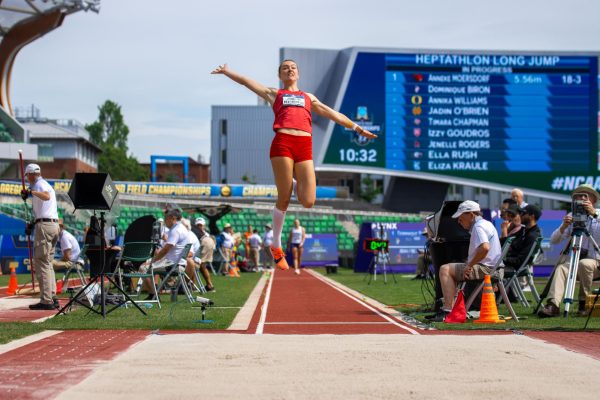
“Honestly, it’s really sad because I would just love to learn more about how I can promote myself and how I get sponsors,” Fee Feyerabend said. “If you’re not able to do contracts, you’re also not practicing for later when you actually can go pro.”
Canadian San Diego State lacrosse player, Reilly Hunter, sees no need to build a brand around herself until something changes.
“I don’t really try to build a brand for myself, because there’s no point sort of thing, Hunter said.
Foreign-born college athletes have found ways to participate in NIL. They can sign deals back in their home countries or explore other visa categories where employment is allowed like O-1 or P-1.
UCONN women’s basketball player and 5th overall pick in the 2024 WNBA Draft, Aaliyah Edwards, flew home to Canada to sign a major endorsement deal with Adidas.
Going forward there is still heavy uncertainty with international student-athletes profiting off their name, image and likeness. Athletes await more direction from the NCAA and U.S. Congress on the future of non-U.S. citizens participating in NIL.
“Athletes put so much work in and travel like it is a full-time job,” Hunter said. “I just think it would be great if international athletes could participate in NIL.”
For junior water polo goalkeeper Tiaare Ahovelo, the restrictions around NIL are not just a legal obstacle but a personal and financial challenge. Originally from Auckland, New Zealand, Ahovelo is grateful for her full-ride scholarship but acknowledges the financial difficulties of living in the U.S. as an international student-athlete.
“I am on a full ride here, so I’m already being helped a lot, and I’m really grateful for the opportunity that I’m here,” Ahovelo said. “But there are still financial struggles. My parents don’t have the ability to give me money, as lenient as some other people’s parents, so I’m fully financially… dependent on myself. So if I had NIL money, that would ease a lot for myself—not only having to be a student and athlete but also having to live just in general.”
Ahovelo sees the potential for NIL to enhance the collegiate experience but recognizes the constraints imposed by her visa status.
“The deal with international students is that you cannot actively promote your product while you’re on U.S. soil. So, for example, if I was to sign a contract and it was passive income at home, that’s completely fine. But if the contract that they give me says that I have to actively promote, that’s something I can’t do on U.S. soil,” she explained.
Despite this, Ahovelo maintains an understanding perspective toward the fledgling NIL system.
“It’s a bit unfortunate. I am… almost understanding to NIL being so new that they want to focus on their country first, and like it is the NCAA of the U.S. So I fully understand that. But once it starts to grow and things like that, I hope that they are more inclined to help out international students because there are so many different international students from all over the world that aim to come here for a better sporting opportunity. So I would hope that they can also gain from it financially as well,” she said.
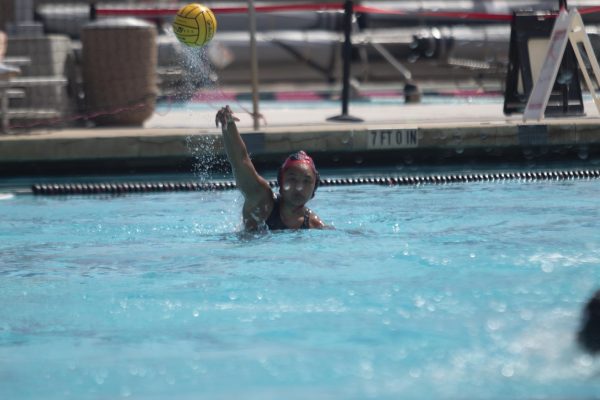
For Ahovelo, the challenges go beyond financial barriers; the pressure to maintain a spotless public image adds another layer of difficulty.
“As an athlete, whether you’re wearing the uniform or not, you are representing the school, this athletic department, and your team. So they’re just wanting to make sure that anything you do isn’t going to give a negative connotation to any of those images,” she said.
The careful monitoring of social media and public appearances is especially important for Ahovelo, who adjusts to the stricter standards expected of student-athletes.
“For example, in New Zealand, alcohol is obviously legal. The legal age is 18. So if I’m going to take pictures back at home, I make sure that there’s no alcohol inside,” she explained. “Because I love being here playing NCAA sports for SDSU specifically, I’m willing to do anything, and it just comes as a natural manner, honestly.”
Ahovelo hopes for a future where international athletes receive the same opportunities as their American teammates.
“I hope that they can see that international athletes should be valued the same as American athletes in the sense that we put in the hard work as well. A lot of us are in the starting lineup… And there’s actually a lot of internationals who are Olympians as well,” she said. “Hoping that they see that equality between all of us and being like, okay, because we are all equal, you can have these opportunities as well.”
The NIL debate highlights an ongoing struggle for fairness and equality in college sports. As the system evolves, athletes like Ahovelo, Fee Feyerabend and Hunter remain hopeful for change, knowing their contributions to their teams extend far beyond the field of play.




